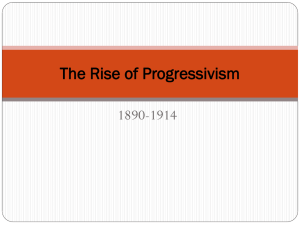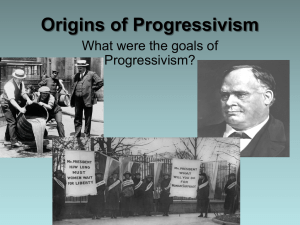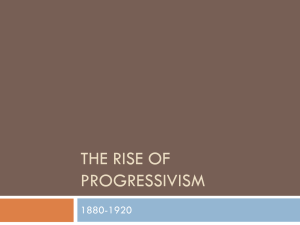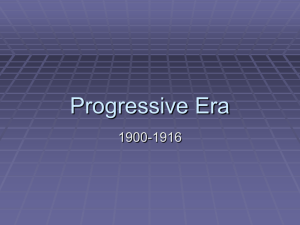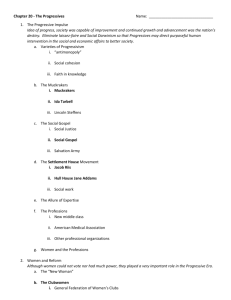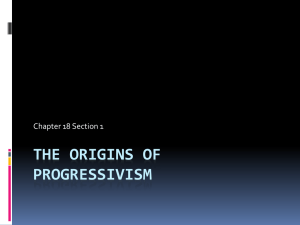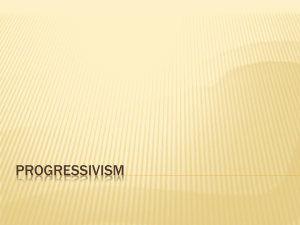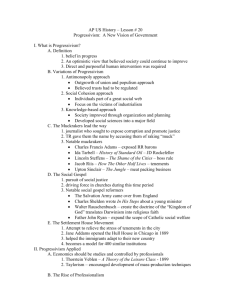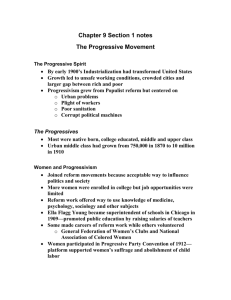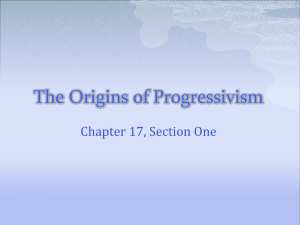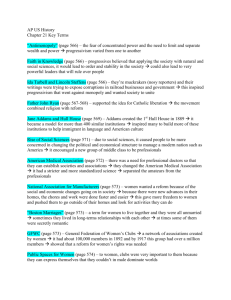17.1 The Drive For Reform Industrialization, urbanization, and
advertisement
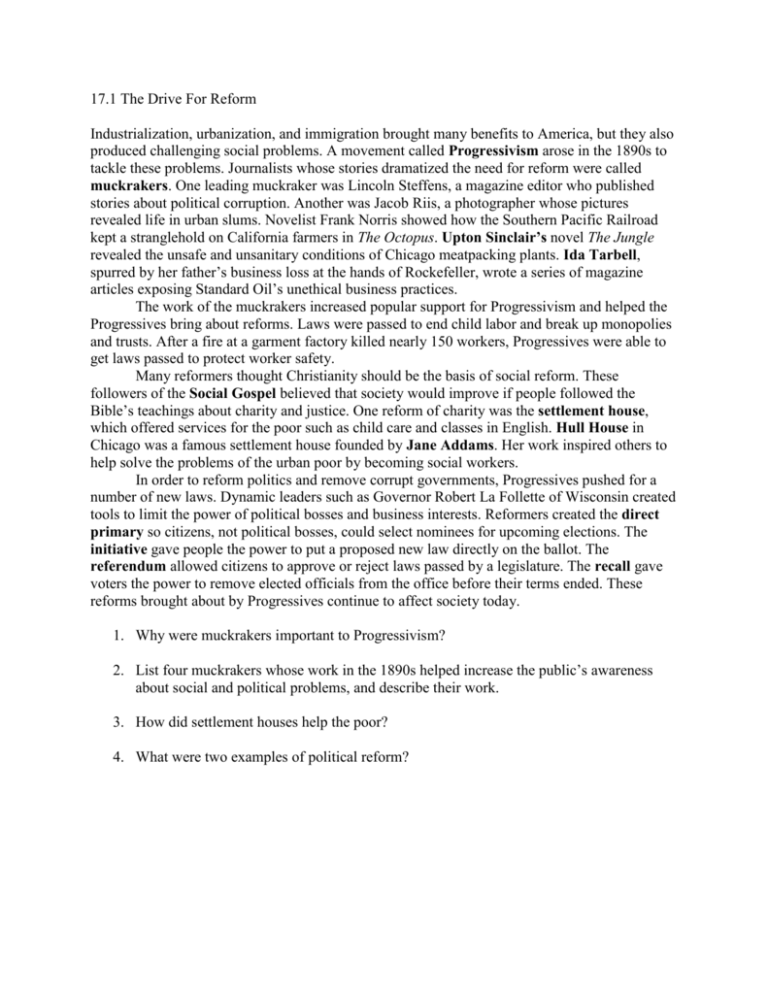
17.1 The Drive For Reform Industrialization, urbanization, and immigration brought many benefits to America, but they also produced challenging social problems. A movement called Progressivism arose in the 1890s to tackle these problems. Journalists whose stories dramatized the need for reform were called muckrakers. One leading muckraker was Lincoln Steffens, a magazine editor who published stories about political corruption. Another was Jacob Riis, a photographer whose pictures revealed life in urban slums. Novelist Frank Norris showed how the Southern Pacific Railroad kept a stranglehold on California farmers in The Octopus. Upton Sinclair’s novel The Jungle revealed the unsafe and unsanitary conditions of Chicago meatpacking plants. Ida Tarbell, spurred by her father’s business loss at the hands of Rockefeller, wrote a series of magazine articles exposing Standard Oil’s unethical business practices. The work of the muckrakers increased popular support for Progressivism and helped the Progressives bring about reforms. Laws were passed to end child labor and break up monopolies and trusts. After a fire at a garment factory killed nearly 150 workers, Progressives were able to get laws passed to protect worker safety. Many reformers thought Christianity should be the basis of social reform. These followers of the Social Gospel believed that society would improve if people followed the Bible’s teachings about charity and justice. One reform of charity was the settlement house, which offered services for the poor such as child care and classes in English. Hull House in Chicago was a famous settlement house founded by Jane Addams. Her work inspired others to help solve the problems of the urban poor by becoming social workers. In order to reform politics and remove corrupt governments, Progressives pushed for a number of new laws. Dynamic leaders such as Governor Robert La Follette of Wisconsin created tools to limit the power of political bosses and business interests. Reformers created the direct primary so citizens, not political bosses, could select nominees for upcoming elections. The initiative gave people the power to put a proposed new law directly on the ballot. The referendum allowed citizens to approve or reject laws passed by a legislature. The recall gave voters the power to remove elected officials from the office before their terms ended. These reforms brought about by Progressives continue to affect society today. 1. Why were muckrakers important to Progressivism? 2. List four muckrakers whose work in the 1890s helped increase the public’s awareness about social and political problems, and describe their work. 3. How did settlement houses help the poor? 4. What were two examples of political reform?
